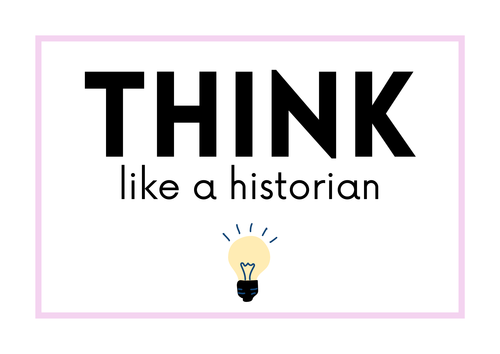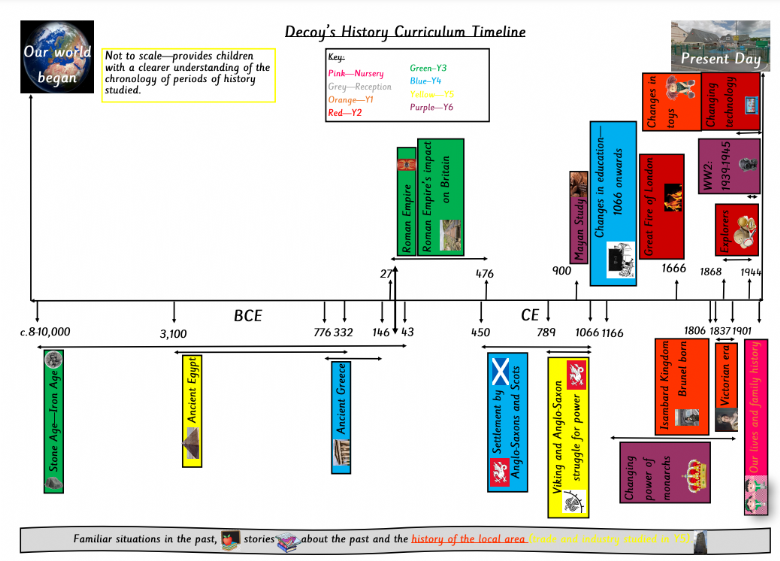History
 Aims
Aims
The national curriculum for history aims to ensure that all pupils:
- know and understand the history of these islands as a coherent, chronological narrative, from the earliest times to the present day: how people’s lives have shaped this nation and how Britain has influenced and been influenced by the wider world.
- know and understand significant aspects of the history of the wider world: the nature of ancient civilisations; the expansion and dissolution of empires; characteristic features of past non-European societies; achievements and follies of mankind.
- gain and deploy a historically grounded understanding of abstract terms such as ‘empire’, ‘civilisation’, ‘parliament’ and ‘peasantry’.
- understand historical concepts such as continuity and change, cause and consequence, similarity, difference and significance, and use them to make connections, draw contrasts, analyse trends, frame historically-valid questions and create their own structured accounts, including written narratives and analyses.
- understand the methods of historical enquiry, including how evidence is used rigorously to make historical claims, and discern how and why contrasting arguments and interpretations of the past have been constructed.
- gain historical perspective by placing their growing knowledge into different contexts, understanding the connections between local, regional, national and international history; between cultural, economic, military, political, religious and social history; and between short- and long-term timescales.
Intent
By the end of Key Stage 2, our pupils will ‘Think like a historian’

Through learning about British and World History our children will understand the impact of societies, influential people and events on our lives today, thus helping them to make sense of the world that they live in.
Implementation
Throughout their time at Decoy, our children are taught about a range of different time periods in the form of large scale case studies as well as those that focus on specific individuals and their impact on society. We teach each topic with reference to the children’s previous e
Our children learn to become active historians having opportunities to handle and investigate artefacts as well as visit sites of local significance. Our aim is that these experiences develop the children’s ability to present historical knowledge with a critical understanding of the different perspectives and bias that are at play when recording and making history.
Impact
What will this look like?
We want children to see themselves as historians and use their knowledge to make sense of the world around them. We want them to be curious learners who are consta ntly making links between periods of history already learnt about and themes they have investigated. We want them to be able to confidently articulate their ideas right from the EYFS up to the end of Key Stage 2. Teachers encourage children to do this verbally as well as in written form. Children will progress to be able to critically question history and the reliability of accounts.
ntly making links between periods of history already learnt about and themes they have investigated. We want them to be able to confidently articulate their ideas right from the EYFS up to the end of Key Stage 2. Teachers encourage children to do this verbally as well as in written form. Children will progress to be able to critically question history and the reliability of accounts.
Teachers use a variety of assessment tools, including: pupil discussions about their learning and scrutiny of books (and digital platforms such as Tapestry) by the subject leader and senior leadership to check for progress. Progress of our history curriculum is demonstrated through outcomes, the record of coverage and the ability of children to articulate knowledge learnt and to critically discuss history.
